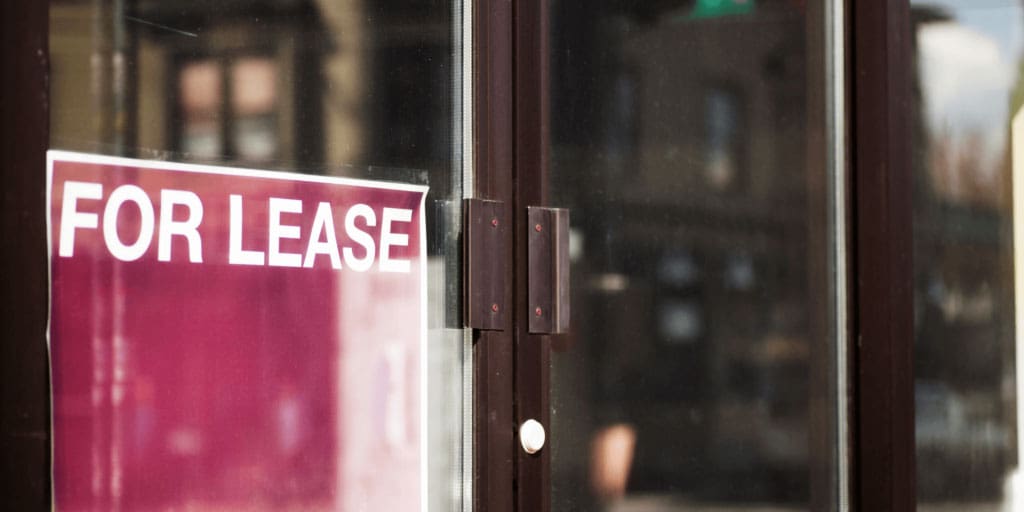When it comes to leasing commercial property, there are a lot of potential challenges to prepare for. In this article, we share everything you need to know about commercial leases – whether you are a property owner or are looking for new premises.
Unlike residential rental properties, commercial properties are governed by the Property Law Act 2007 and leases are based on a Deed of Lease, typically with the assistance of a lawyer. This means the rules and expectations are slightly different, so to ensure your next lease runs smoothly, read our full explainer below.
What is a commercial lease?
A commercial lease is an agreement between a landlord (lessor) and a tenant (lessee) for the use of a commercial property. The lease outlines the terms of the tenancy, including the rental amount, length of the lease, responsibilities of the landlord and tenant, and any restrictions or provisions.
The tenant pays rent to the landlord in exchange for the right to use the property for business purposes. They are responsible for complying with the terms of the lease and using the property for lawful purposes. In turn, the landlord is responsible for maintaining the property and ensuring that it is suitable for the tenant’s use.
To simplify the process, we have split the article into two sections — one for lessees and one for lessors.
Lessees and tenants
If you run a business and need a new premise, leasing is often a wise choice. As a tenant, your responsibilities include:
- Paying rent on time.
- Keeping the property in good condition.
- Reporting repairs or maintenance issues to the landlord or property manager promptly.
- Resolving any disputes in a professional manner.
- Adhering to the terms of the lease agreement.
- Maintaining open communication with the landlord or property manager.
To help you find suitable premises, and understand your obligations throughout the lease, we’ve outlined the key considerations below:
How to find a commercial property
To find a suitable premise to rent follow these 5 steps:
-
Identify your needs
Before you start your search, make sure you have a clear understanding of what you’re looking for in a commercial property. This includes the size, location, and type of space you need, as well as your budget.
-
Use online resources
There are many free real estate platforms to use, such as Trade Me Property and Real Estate NZ. While you look, pay attention to the valuations and amenities available so you can weigh up your options.
-
Contact real estate agents
A commercial real estate agent can help you find a property that meets your needs. They will have access to a wide range of properties and can help you navigate the negotiation and lease agreement process.
-
Visit the location
If you see a listing you like, arrange a viewing to get a better idea of the space. This is an opportunity to assess the condition of the property and note any potential problems. For a helpful checklist of things to look out for, download our helpful guide.
-
Negotiate the lease agreement
Once you’ve found a property you’re interested in, it’s time to negotiate with the lessor or their agent. Make sure you understand the responsibilities of both parties and have a clear understanding of the rent, security deposit, and any other terms and conditions.
Payments and expenses
A commercial tenant typically pays rent on a monthly or quarterly basis. In addition to the base rent, they may also be responsible for paying a portion of the building’s operating expenses, commonly called OPEX. Lessee expenses may include:
- Regular rent instalments
- Property taxes
- Property maintenance
- Insurance
Maintenance and repairs
While the lessor is obligated to maintain the commercial property and arrange for any repairs, the lessee also has certain responsibilities. As a baseline, the lessee must keep the property in reasonable condition, meaning it should be clean and intact at the end of the lease.
If the lessee wants to make major changes to the property, they must get permission from the lessor. The specifics will be laid out in the lease agreement, particularly in terms of any fixtures.
Enlist professional help
Before you begin looking for a commercial property to lease, reach out to a local real estate professional. Not only will they share their expert market knowledge, but they will also have a range of opportunities to suit your needs. Working with a professional will save you time, stress, and resources in the hunt for your new premises. The team at McDonald Real Estate are here to help, so contact us today to discuss your next lease.
Lessors and property owners
If you own a commercial property, leasing it out to a business can generate a rewarding return on your investment. However, there are a few considerations to make along the way, which we’ve outlined below:
Your duties as a lessor include the following:
- Renewing the lease.
- Keeping accounting records.
- Arranging maintenance and repairs.
- Budgeting.
- Collecting rent from the lessee/tenant.
- Resolving any disputes with the lessee/tenant.
- Finding suitable tenants.
How to find commercial tenants
To secure the most suitable tenant, you need to present the property in an appealing way. The goal is to put your property at the forefront of prospective tenants’ minds and secure the highest possible rent.
A well-presented property will lease faster than one that is not maintained. Tenants often form their first impression based on appearance, so follow these 7 steps to help achieve a rewarding result:
-
Determine the rental price
Research the local commercial real estate market to determine the going rate for similar properties in the area. It is also worth booking a commercial appraisal with an experienced real estate agent in your area.
-
Prepare the property
Before anyone views the property, make sure everything is clean and in working condition. This may include painting, fixing any damage, and updating the electrical or plumbing systems if necessary.
-
Create marketing materials
The quality of your advertising materials will influence the number of interested tenants you have. Take high-quality photographs of the property and create a detailed description of its amenities. This information can be used to create online listings, brochures, and other marketing materials. If you work with a real estate agent, they will usually take care of this for you.
-
List the property
Now it’s time to advertise the property for lease on a public platform. If you work with a real estate agency, your property will be listed on a variety of platforms including Real Estate NZ, Oneroof, Trade Me Property and their own company website.
-
Show the property
Next, arrange for your prospective tenants to visit the property, either through open viewings or private tours. Be prepared to answer questions and provide information about lease terms and conditions. For a helpful checklist of things to look out for, download our helpful guide.
-
Review and sign a lease agreement
When you find an interested tenant, review and negotiate the lease agreement. Make sure that the agreement clearly outlines the terms of the lease, including the rental price, length of the lease, security deposit and responsibilities of both parties.
-
Complete the necessary paperwork
File any necessary paperwork with the government, such as registering the lease agreement or obtaining the necessary rental permits. If in doubt, speak with your local real estate agent for assistance.
Payments and expenses
While your tenant will be paying regular rent payments, there are also several expenses you will need to pay as a landlord. These may include:
- Property taxes
- Building maintenance and repairs
- Insurance
- Utilities
- Capital expenditures
The lease agreement will outline these rights and obligations for both the lessor and the lessee. Find out more about each of these payments in our downloadable guide.
Maintenance and repairs
As the lessor, you are responsible for maintaining the property. This means you must be available 24/7 to arrange for repairs and general upkeep whenever the tenant reaches out. However, the tenant is also expected to keep the property clean and in reasonable condition. Additionally, the lease may include provisions regarding the use of the property, such as restrictions on operating hours, signage, and subleasing.
Length of lease
The length of a commercial lease can range from a few months to several years, depending on the type of property and business in question. The average commercial lease length is around three to five years. At the end of the lease term, the tenant may choose to renew the lease, negotiate a new lease agreement, or vacate the property.
Legal obligations
Along with the factors mentioned above, all the legal obligations of a lessor will be laid out in the lease agreement. As a landlord or property owner in New Zealand, you qualify as a Person Conducting a Business or Undertaking (PCBU). That means you are required by Worksafe to “ensure the health and safety of everyone involved with or affected by work on or at your property”.
Before signing a lease agreement, take the time to review and understand all of the terms and conditions thoroughly. Seeking the advice of a real estate professional is a wise step.
Enlist professional help
A property manager can bring several advantages to a commercial property owner. These include:
- Save time and stress
- Industry expertise
- Legal experience
- Established networks
At McDonald Real Estate, we understand it can be daunting to sign a new lease. That’s why we created our Ultimate guide to leasing a commercial property. Download it now for all the top tips and step-by-step instructions you need to ensure your next lease is a success.





